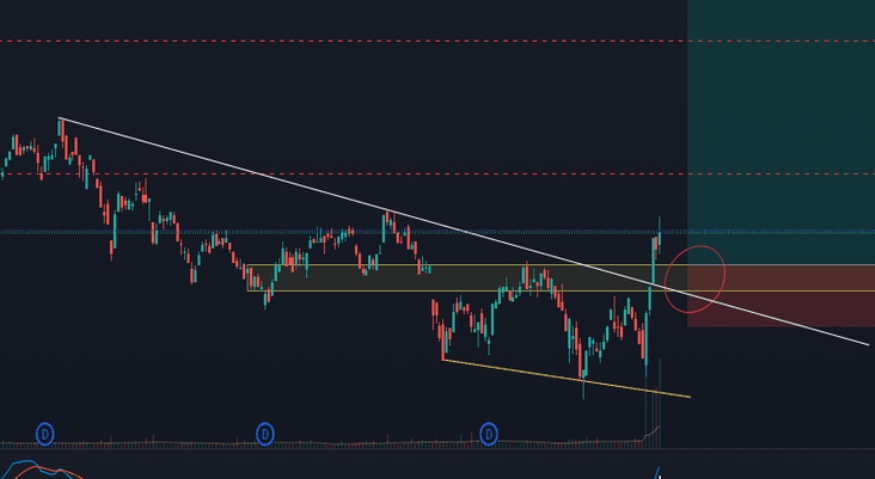Fortifying Portfolios: A Comprehensive Guide to Investing in Defense ETFs
May 13, 2024 By Susan Kelly
What Are Defense ETFs
 Defense Exchange-Traded Funds (ETFs) represent a compelling investment opportunity for investors seeking exposed to dynamic and resilient defense sector. At its core, a Defense ETF is a type of exchange-traded fund that invests primarily in company involved the defense industry. This includes firms engaged in airspace and defense, military equipment manufacturing, cybersecurity, and related services. By pooling together diversified investment portfolio such companies, Defense ETFs provide investors with a convenient and efficient way to gain exposed to defense sector without the need to pick individual stocks.
Defense Exchange-Traded Funds (ETFs) represent a compelling investment opportunity for investors seeking exposed to dynamic and resilient defense sector. At its core, a Defense ETF is a type of exchange-traded fund that invests primarily in company involved the defense industry. This includes firms engaged in airspace and defense, military equipment manufacturing, cybersecurity, and related services. By pooling together diversified investment portfolio such companies, Defense ETFs provide investors with a convenient and efficient way to gain exposed to defense sector without the need to pick individual stocks.
Advantages and Disadvantages of Defense ETFs
 Defense Exchange-Traded Funds (ETFs) present investors with a balanced investment opportunity, combining advantages with considerations that necessitate caution. On the positive side, these ETFs offer diversification, cost-effectiveness, liquidity, transparency, and growth potential. By investing in a single ETF, investors gain access to diversified investment portfolio defense-related companies across various subsectors, mitigating company-specific risks and enhancing portfolio stability.
Defense Exchange-Traded Funds (ETFs) present investors with a balanced investment opportunity, combining advantages with considerations that necessitate caution. On the positive side, these ETFs offer diversification, cost-effectiveness, liquidity, transparency, and growth potential. By investing in a single ETF, investors gain access to diversified investment portfolio defense-related companies across various subsectors, mitigating company-specific risks and enhancing portfolio stability.
Moreover, with lower expense ratios compared to actively managed funds, Defense ETFs offer cost-effective exposed to defense sector, ensuring investors retain a larger portion of their returns. The liquidity of Defense ETFs, trading on major stock exchanges, provides investors with intraday liquidity and real-time pricing information, enhancing portfolio flexibility.
Additionally, the transparency of ETF holdings enables investors to make informed decisions about their investments.
However, investors must be mindful of concentration risk, geopolitical and regulatory uncertainties, technological disruptions, and the cyclical nature of the defense sector. Despite these considerations, by carefully assessing the pros and cons and aligning their investment objectives, investors can leverage Defense ETFs as valuable components of their investment portfolios.
What Are The Most Recommended Defense Etfs To Buy Now
One highly recommended Defense ETF is the iShares U.S. Aerospace & Defense ETF. And this ETF is designed to track investment results of an index composed of U.S. equities in the airspace and defense sector. With diversified investment portfolio leading defense companies, including aerospace manufacturers, defense contractors, and technology providers, ITA can provide investors with exposed to entire spectrum of the defense industry. Its top holdings include industry giants such as Boeing, Lockheed Martin, and Raytheon Technologies. With a competitive expense of ratio and strong historical performance, ITA is favored by investors seeking broad exposed to U.S. defense sector.
Another standout option in the Defense ETF space is the SPDR S&P Aerospace & Defense ETF. This ETF aims to provide investment results that correspond to performance of the S&P Aerospace & Defense Elite Industry Index. XAR offers investors exposure to a diverse array of aerospace and defense companies, including both large-cap and mid-cap stocks. Its portfolio includes participating companies aircraft manufacturing, missile defense systems, and military technology development. With a focus on equal-weighted holdings, XAR provides balanced exposure to companies across the defense sector, minimizing concentration risk and enhancing portfolio diversification.
For investors seeking targeted exposure to cybersecurity and defense technology, the ETFMG Prime Cyber Security ETF (HACK) is an appealing choice. While not exclusively focused on the defense sector, HACK invests in company involved cybersecurity solutions and technologies, which are increasingly vital for national security and defense purposes. With a portfolio of leading cybersecurity firms, including Palo Alto Networks, CrowdStrike, and Check Point Software, HACK offers investors exposed to rapidly growing cybersecurity market. As cyber threats continue to evolve and governments increase investment in cybersecurity infrastructure, HACK is well-positioned to benefit from this trend.
How To Invest In Defense ETFs
Investing in Defense Exchange-Traded Funds (ETFs) offers investors a strategic way to gain exposed to resilient and innovative defense sector. However, navigating the process of investing in Defense ETFs requires careful consideration of several key factors.
The first step in investing in Defense ETFs is to conduct in-depth and thorough research and due diligence. Investors should familiarize themselves with the various Defense ETFs available in the market, including their investment objectives, portfolio composition, expense ratios, historical performance, and potential risks. By understanding the characteristics of different Defense ETFs, investors can identify those that align with their investment objectives, risk tolerance, and preferences.
Once investors have identified suitable Defense ETFs, the next step is to open a brokerage account. Most online brokerage platforms offer access to a wide range of ETFs, including Defense ETFs, making it easy for investors to buy and sell shares. Investors should compare brokerage fees, commissions, and trading platforms to find a brokerage that meets their needs and preferences. After opening a brokerage account, investors can place buy orders for the selected Defense ETFs through the brokerage platform.
When investing in Defense ETFs, investors should consider their investment horizon and portfolio allocation strategy. Defense ETFs can be used as core holdings in a diversified investment portfolio or as tactical allocations to capitalize on specific market opportunities. Investors should assess their risk appetite, investment objectives, and time horizon to determine the appropriate allocation to Defense ETFs within their overall investment portfolio.
Furthermore, investors should monitor the performance and holdings of Defense ETFs on a regular basis. While Defense ETFs offer diversified exposed to defense sector, changes in market conditions, geopolitical developments, and regulatory factors can impact the performance of these ETFs. By staying informed and staying abreast of relevant news and developments, investors can make timely adjustments to their investment portfolios and capitalize on opportunities while managing risks effectively.
It's also important for investors to consider tax implications when investing in Defense ETFs. ETFs are subject to capital gains taxes when shares are sold at a profit, so investors should be aware of potential tax liabilities and plan accordingly. Additionally, investors should be mindful of transaction costs, including brokerage fees and commissions, which can impact overall investment returns.
Conclusion
In conclusion, investing in Defense ETFs presents investors with a strategic opportunity to navigate the ever-changing economic landscape while safeguarding their portfolios against volatility and uncertainty.

Susan Kelly Feb 24, 2024
Do You Know: What Is a Closing Statement?
13800

Susan Kelly May 17, 2024
Top 10 Insurance Providers Championing Mental Health Coverage in 2024
94004

Triston Martin May 20, 2024
Deciphering Taxes on Your Social Security Income
5334

Triston Martin May 21, 2024
Earn Cash for Your Shopping: 4 Apps That Pay You for Your Receipts
85003

Susan Kelly May 21, 2024
9 States Where Residents Escape Income Tax Burdens
84827

Susan Kelly May 12, 2024
Navigating Financial Horizons: A Comprehensive Review of the Square Savings Account
95395

Susan Kelly May 12, 2024
Democratizing Investing: A Comprehensive Guide to Cash App Investing
34222

Susan Kelly May 13, 2024
Navigating the Path to Financial Success: A Guide to Buying TSX Stocks
38879